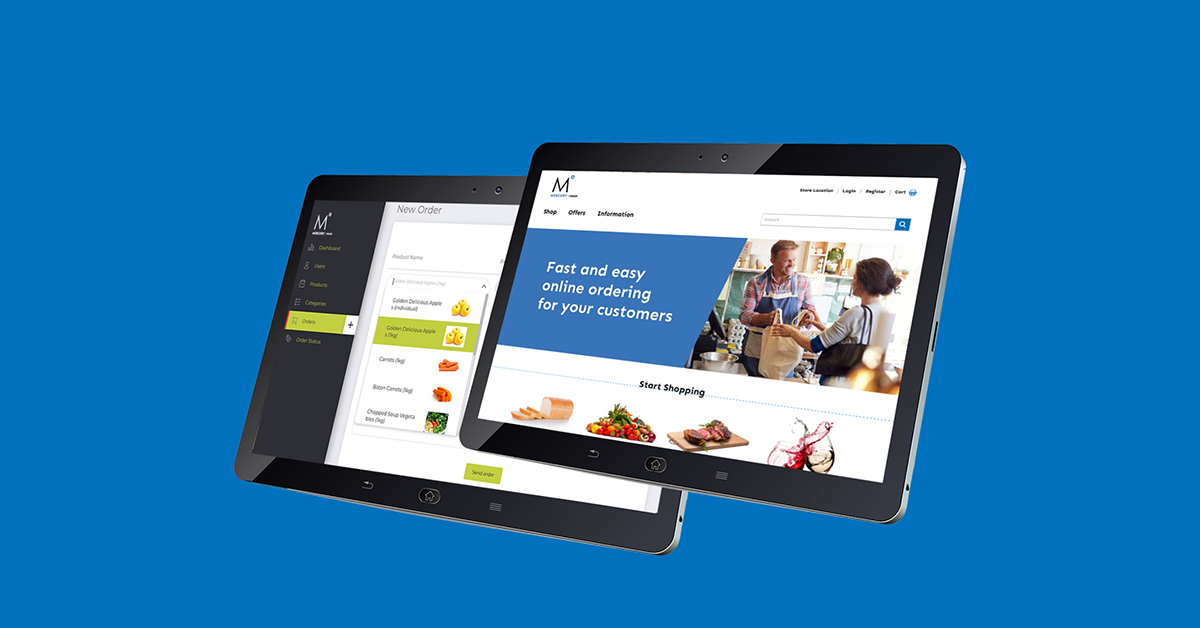How retailers can compete against the big four
Are small retailers just the right size? Due to the sudden surge of online sales, many large supermarkets have been struggling to cope with the demand and online grocery upheaval.
The ‘Big four’ supermarkets – Tesco, Sainsbury’s, Morrisons and Asda – continue tackle the rapid increase in online orders prompted by the coronavirus outbreak.
Online grocer Ocado saw its website and app crashing multiple times as shoppers scurried to shop online in a bid to self-isolate. At one point, Ocado had a queue of almost 74,000 shoppers. Delivery slots were not available for days, with demand exceeding that of the Christmas period.
This is not only a time for small businesses to digitalise, but to capitalise on the online consumer demand that larger supermarkets are failing to accommodate.
Advantages smaller retailers have over large supermarkets:
- A personalised service.
- Provision of local products.
- Creation of jobs for the local community.
- Within close proximity to a lot of consumers.
- Small enterprises receive communal support.
- Operating on a smaller scale favours reducing the spread of coronavirus.
Small retailers often face bargaining power and competitive pricing disadvantages relative to larger retailers. However, these disadvantages are possible to overcome by assertive and proactive small business owners who take action.
How can smaller retailers compete against these retail giants?
1. Leverage an entry point to e-commerce
Solely relying on traditional, instore sales has quickly become a thing of the past. To cater to the rapidly changed consumer buying patterns, essentially retailers’ only option to recoup losses is to sell produce online. Examples of this are click and collect and delivery services.
2. Encourage community support
More than ever, communities across Ireland and the UK are coming together to support local enterprises and jobs. People are aware that large companies will be resilient in this crisis due to their disposable incomes and massive budgets. The ‘support local’ movement is currently trending on social media. Where possible, there is a conscious effort to purchase goods from family owned business – 83% of Irish retail businesses are Irish owned, 75% of which are family owned.
Accommodate the community that wants to support you – provide services, such as delivery, to allow consumers to shop from the safety of their homes.
3. Contribute to flattening the Covid-19 curve
Although business and finances are naturally a primary worry, the ultimate concern is the safety of loved ones. Modifying sales operations to encourage social distancing in your community is ethically correct. Expressing this consideration for your customers will strengthen brand loyalty while contributing to flattening the curve.
4. Customer Service
Many large retailers are caught up in cost-efficiency and mass distribution – two factors which don’t necessarily tally with the best interests of their customers. Small business owners and managers must work to establish a culture in which customer service and safety is a top priority. When this is effectively done, small businesses can have a much more personal touch with their marketplace in these difficult times, relative to large chain stores.
Why not get in touch to find out how we are helping our retail customers to improve and adapt their sales services? Contact us today. NI/GB +44 2871 228820 ROI: +353 1 247 5294.



